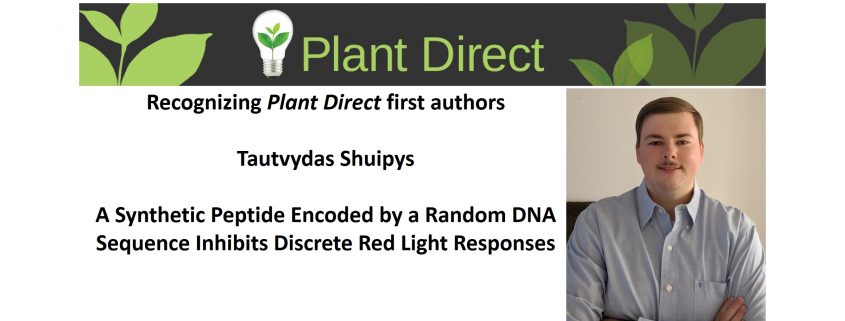Recognizing Plant Direct first authors: Tautvydas Shuipys
Tautvydas Shuipys, first author of A Synthetic Peptide Encoded by a Random DNA Sequence Inhibits Discrete Red Light Responses
Current Position: PhD Candidate in the Genetics and Genomics Graduate Program at the University of Florida
Education: PhD in Genetics and Genomics at the University of Florida (2016-Present), BS in Biology with a Molecular Emphasis and Minor in Chemistry at Loyola University Chicago (2012-2016)
Non-scientific Interests: swimming, hiking, reading science fiction novels, watching movies, and playing video games
Brief Bio: There is limited land for agriculture, yet we will need to feed more people with that space. We also need to achieve this intensification under an unpredictable climate. As a result, I am interested in finding ways to increase production and modify plant development. I started working with plants during my undergraduate research at Loyola University characterizing new families of retrotransposons in white clover (Trifolium repens). My graduate research focuses on a transformational approach for discovery of novel chemistries that affect plant biology. We have developed populations of Arabidopsis plants expressing random DNA sequences and have identified candidates for novel plant growth regulators, herbicides, and crop protectants. The referenced work describes the discrete role for a novel peptide that affects specific aspects of seedling development in red light, showing that random peptides can serve as a starting point for development of new plant growth regulators.




